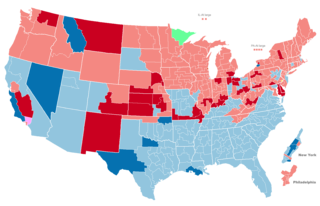| |||||||||||||||||||||||||||||||||||||||||||||||||||||||||||||||||||||||||||||||||||||||||||||||||||
All 435 seats in the United States House of Representatives 218 seats needed for a majority | |||||||||||||||||||||||||||||||||||||||||||||||||||||||||||||||||||||||||||||||||||||||||||||||||||
|---|---|---|---|---|---|---|---|---|---|---|---|---|---|---|---|---|---|---|---|---|---|---|---|---|---|---|---|---|---|---|---|---|---|---|---|---|---|---|---|---|---|---|---|---|---|---|---|---|---|---|---|---|---|---|---|---|---|---|---|---|---|---|---|---|---|---|---|---|---|---|---|---|---|---|---|---|---|---|---|---|---|---|---|---|---|---|---|---|---|---|---|---|---|---|---|---|---|---|---|
| |||||||||||||||||||||||||||||||||||||||||||||||||||||||||||||||||||||||||||||||||||||||||||||||||||
 Results: Democratic hold Democratic gain Republican hold Republican gain Socialist gain Prohibition hold Farmer-Labor gain | |||||||||||||||||||||||||||||||||||||||||||||||||||||||||||||||||||||||||||||||||||||||||||||||||||
| |||||||||||||||||||||||||||||||||||||||||||||||||||||||||||||||||||||||||||||||||||||||||||||||||||
The 1918 United States House of Representatives elections were elections for the United States House of Representatives to elect members to serve in the 66th United States Congress. They were held for the most part on November 5, 1918, while Maine held theirs on September 9. They occurred in the middle of President Woodrow Wilson's second term.
With the country in World War I (contrary to previous promises by Wilson), and Wilson's personal popularity ebbing, the Republicans gained 25 seats and took over control of the House from Wilson's Democrats. Internal divide among Democratic leadership over aspects related to payment of the war also decreased the unity of the party, which had been the organization's strength during the decade. The Progressive Party also disappeared, with its former members generally becoming Democrats. Minnesota's Farmer–Labor Party, a descendant of populism, also gained its very first seat.
Frederick H. Gillett (R-Massachusetts) became Speaker, and previous speaker Champ Clark (D-Missouri) became Minority Leader.
Cite error: There are <ref group=lower-alpha> tags or {{efn}} templates on this page, but the references will not show without a {{reflist|group=lower-alpha}} template or {{notelist}} template (see the help page).


